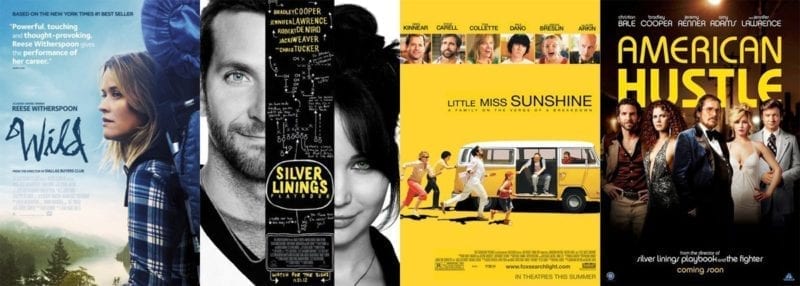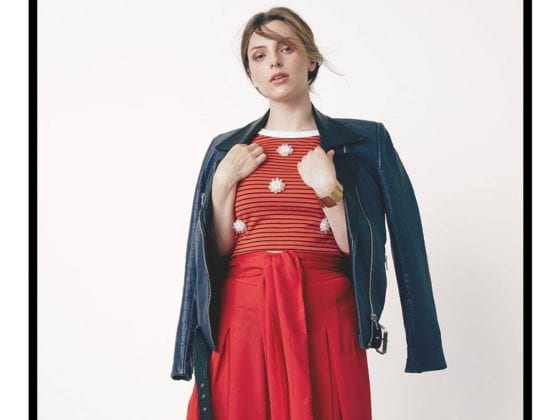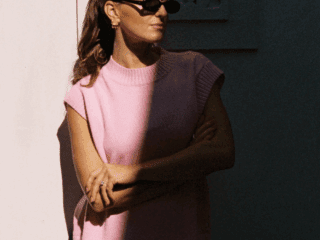Meet Sue Jacobs, music supervisor for notable films such as Silver Linings Playbook, American Hustle, Little Miss Sunshine and more. Over two decades Sue has put sound to picture, powerfully impacting the films we watch and transporting us through her song selection expertise. She is a dreamer of vision and sound.
As a fellow female music curator, Sue Jacob’s impressive repertoire of work and unique career inspired me to unearth more of this Dreamer’s story and creative process.
Were you always drawn to music?
Sue: Always. I grew up in a big family. I was the 8th of 9 children. You had to be five years old to sit at the big dinner table. Dinners always had music, TV was only allowed on rare occasions. When I did graduate to the “big table” I was the one that picked the music almost every night. I loved surprising my parents with something new they’d not heard in a while, combing through vinyl, twirling our cassette holder, looking for something unexpected and wonderful to play; something they’d notice. Thinking back, this was my first supervising job, a six-year-old music supervisor for the Jacobs’ dinner hour.
Tell me about your journey to becoming a music supervisor.
Sue: Throughout the arc of my career, I’ve had the great fortune to meet wonderful people, each of whom inspired me to make transformational job changes. I have also been helped by a good dose of serendipity and by being at the right place at the right time. I was working as a vet tech in Woodstock, NY where I met a woman who convinced me to leave small-town life and move to NYC. Weeks after arriving in New York, I met a music producer who asked me to help out for a bit. My first soundtrack credit appears on the She’s Gotta Have It soundtrack album, which I put together with Bill Lee, (Spike Lee’s father) who is a great musician. I still love this score.
I went on to work as a project manager for another music producer – this was my start as a Music Supervisor before I even knew there was such a career. I became Julian Schnabel’s Music Supervisor for Basquiat, my first solo credit. And so my career began. I feel a great debt of gratitude to Iris Lewis who was the one who encouraged me to move to NYC.
Where do you find creative inspiration?
Sue: The hard-working directors, producers and film crews are my greatest inspiration. I always want to help facilitate a Director’s vision, but I also find it equally helpful to challenge or “test” that vision. I love to be fluid to challenge what we think is great and see if it can be greater or bring another point of view for consideration. I want each soundtrack to belong only to that film. If people hear the music and immediately think of the film before the composer or band, then I feel I’ve been successful. I then know that the music is embedded in the process and not a standalone product.
I love to be fluid to challenge what we think is great and see if it can be greater or bring another point of view for consideration.
What is the most rewarding part of your job?
Sue: Finding young unknown talents and giving them a format to be heard is incredibly gratifying to me. I love working on independent films for the opportunities they provide. I love finding and guiding talent, and I enjoy the challenge of encouraging a director to give them a chance.
What work are you most proud of?
Sue: For song-based film, American Hustle, I felt so happy to find unknown songs for a 70’s period film. Those years are so heavily overused in film, it’s hard to find lost gems. David O. Russell and I found gems. It’s a great soundtrack winning the Guild of Music Supervisors Award (the Academy doesn’t recognize Music Supervision yet).
Everything Is Illuminated featured an original score created by composer, Paul Cantelon. At the time Paul didn’t have one film credit to his name. The score was made by me holding a microphone to a DAT player, recording him live on an acoustic grand piano and then orchestrated. It’s magnificent. Paul started a new career based on his success in this film. You don’t need fancy equipment to make a great score. I always loved the score to Orson Welles’ Third Man, all created on one instrument to great effect. Low budgets should never cause a lack of creativity, it should only create opportunity.
What does music mean to you?
Sue: Music to me is like the sky, it takes you on a journey. Put on a dancing record on a sad cloudy day and you’re immediately joyful. Listen to reflective music on a sunny happy day and you might find yourself shedding a tear. Music instantly transforms and relocates the heart.
Has there been a soundtrack that’s deeply moved you? Which one?
Images via IMDB












4 comments
Hi there,I log on to your new stuff named “The Woman Behind the Music: An Interview with Sue Jacobs – Darling Magazine” like every week.Your story-telling style is awesome, keep up the good work! And you can look our website about proxy server list.
This was such a great article. When I was a little girl, I dreamed of working on movie scores and soundtracks. Unfortunately, I gave up on that dream, but reading about it makes me feel like a little girl again – like the dream is close enough to touch again.
Really enjoyed this article. Music supervising is such a vital and incredible part of filmmaking that is often overlooked. Music is probably my favorite aspect of film. There’s nothing I love more than a moment being perfectly woven together with a song by an artist that I love and respect. I really enjoyed the questions that Katie asked Sue too. I loved hearing about Sue’s childhood and picking songs for her family dinners. I was so happy to see Darling have a conversation about this industry with two awesome women!
I loved this article! I always thought it would be such an intriguing career to be in charge of dictating the music for a film.